UTO grants helped the Spanish Reformed Episcopal Church survive, rebuildPosted Nov 12, 2019 |
|
[Episcopal News Service] At one point in the mid-19th century, almost all of the residents of Villaescusa, a tiny village in the north of Spain near Santander, were Episcopalians.
It started with one villager who traveled 200 miles to the town of Fuentesaúco, where he bought a Bible, carried it home and began reading it. Then he brought the Bible to his Roman Catholic priest.
“The priest said, ‘This is a Protestant Bible; you cannot have this,’” said Bishop Carlos López Lozano of the Spanish Reformed Episcopal Church, during a visit with 12 U.S. Episcopalians to Holy Spirit Church in Villaescusa.
The man, Melquíades Andrés, didn’t know anything about being a Protestant; he just wanted to read the Bible. But the priest said, “‘Give me this Bible. I’ll put it in the fire.’” The man did not surrender the Bible and, instead, traveled 222 miles to Salamanca, where he attended his first Episcopal service at the Church of the Redeemer. “He went, he liked the service and then he saw the school,” López explained.
In October, 31 Episcopalians traveled to Spain for a 10-day pilgrimage organized by the United Thank Offering in coordination with the Episcopal Diocese of Northern Indiana through Corazon Travel. The pilgrimage began with Mass at the Anglican Cathedral of the Redeemer in Madrid. The following day, the pilgrims boarded a bus and drove to the 11th-century walled city of Avila.
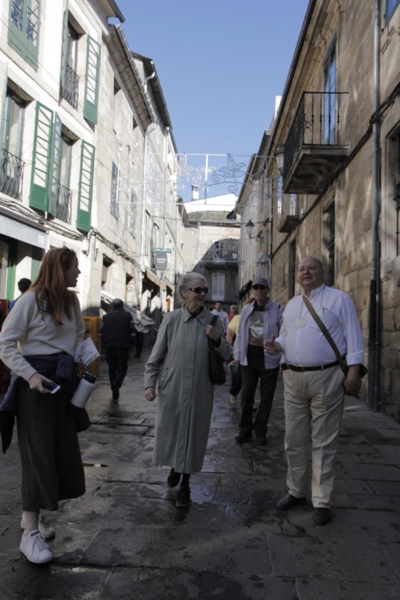
From left, Isabelle Watkins, UTO intern; Louise Ambler, a member of Christ Church in Cambridge, Massachusetts; and Bishop Carlos López Lozano of the Spanish Reformed Episcopal Church walk the streets of Lugo, Spain, where the old city is still surrounded by Roman walls. Photo: Lynette Wilson/Episcopal News Service
In Avila, the group went in two different directions. A dozen people traveled by small bus to Salamanca, where they visited the first of three UTO grant sites; the larger group departed for Sarria, where the next day they began the 62-mile walk along the Camino de Santiago de Compostela. The two groups would later converge in Arzúa for a pilgrims’ Mass the night before the walking pilgrims completed the journey’s final 12 miles and the groups reunited in Santiago de Compostela.
The “grant-site pilgrims” made stops in Salamanca, where they visited the Atilano Coco Center, an international student center named for Coco, an Episcopal priest and a professor at the University of Salamanca who was assassinated by the Franco regime in December 1936. From there, they visited the rectory that serves as Holy Spirit Church in Villaescusa, and later, they stopped by St. Eulalia, a storefront church serving low-income Spaniards and immigrants in a public housing development on the outskirts of Oviedo.
The grant-site pilgrims, who heard the history of the Spanish Reformed Episcopal Church, were surprised to learn of the critical impact UTO grants have had on churches and ministries across Spain.
“I knew that we had this long relationship with the Spanish church, but I didn’t realize how [the church was] nearly exterminated and how deliberate that extermination had been,” said Sherri Dietrich, UTO board president, who attends St. Andrew’s Episcopal Church in Newcastle, Maine. “And what they’ve done since then, and Bishop Lozano and the church people we’ve met, they’re so positive and optimistic. Not pie-in-the-sky optimistic, but they’re just doing what God has called them to do.”
“The [UTO] board, like all church boards, doesn’t have a lot of money to spend on board expenses, so we don’t get to see what our grants have done. You know, we get reports, but we don’t see it firsthand,” she said.
The Spanish Reformed Episcopal Church celebrated its 150th anniversary in 2018. In the years following the Spanish Civil War when the country was under the dictatorial rule of Francisco Franco, the government confiscated the church’s property, with the exception of the cathedral in Madrid, forcing the church underground.
“Twenty-six buildings and 14 schools were taken by Franco,” said López, who led the grant-site pilgrims’ tour. “The church was almost entirely destroyed. People met in a private home with a Bible and the Book of Common Prayer.”
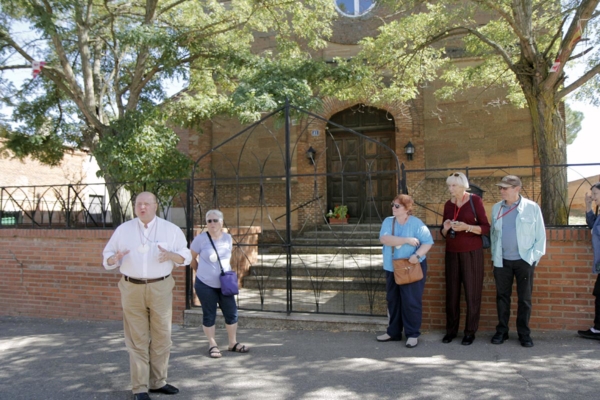
Bishop Carlos López Lozano of the Spanish Reformed Episcopal Church explains to the UTO pilgrims that Holy Spirit Church in Villaescusa, Spain, was seized by the government of Francisco Franco in 1936. Today, the building belongs to a Swiss company and the congregation worships down the hill in the former rectory. Photo: Lynette Wilson/Episcopal News Service
In 1936, when Holy Spirit Church in Villaescusa was forced out of its building, the congregation moved a three-minute walk down the hill to the rectory, where they worshiped until 2008, when the roof collapsed and they moved to the city hall. A $20,000 UTO grant allowed the small congregation to fix the rectory’s roof.
“Seeing where our money went to repair a roof with a congregation that had only 15 people – they would have never been able to do that; they would have had to close again,” said Dee Dugger, a UTO coordinator for the Diocese of Florida and also her parish, Holy Trinity in Gainesville.
Like Dietrich, Dugger appreciated the opportunity to see the results firsthand.
“For me, to be able to see where the money goes that we collect each year, and then to be able to go back and tell my parishioners and my diocesan constituents that every penny counts,” she said, while fighting back tears. “How can we have made [such] a difference in Spain? We have basically saved the Episcopal Church here in Spain,” said Dugger.
In the 1950s, the U.S.-based Episcopal Church became aware of the Spanish church’s challenges, among them having no bishop. So in 1956, two American bishops – Minnesota Bishop Stephen Keeler and Northern Indiana Bishop Reginald Mallett – along with a bishop from the Church of Ireland, which had oversight of the Spanish Episcopal Church at the time, snuck into the country and in secret, consecrated the Rt. Rev. Santos M. Molina in his home in Sevilla.
Mallett and his wife had vacationed in Spain previously and returned under the pretense of tourism, said Northern Indiana Bishop Douglas Sparks, who walked the Camino with the UTO pilgrims.
“On the first day, they baptized, confirmed and received a number of people. On the next day, they ordained deacons and priests, and then they ordained the bishop who had been elected [clandestinely],” said Sparks, and when they left, their secret visit hit the newspapers.
“The Episcopal Church in Northern Indiana, our diocese, they’re grateful for the risks that Bishop Mallett took and the other bishops to come and to make it possible for the church to be sustained in the midst of some pretty challenging and life-threatening experiences,” Sparks said.
Then, UTO took notice. “From 1956 until now, UTO has helped us to survive,” said López. To date, the Spanish church’s properties have not been returned, nor has it received compensation, though it formally requested the latter a decade ago.
After Franco’s death in 1975, the church began to rebuild with the continued support of UTO and others. Today, it operates 55 parishes in all major cities and towns in Spain with bi-vocational clergy. Last year, to help celebrate its anniversary, the Spanish church invited the Rev. Heather Melton, UTO’s staff officer, to speak during its kickoff event, and it was from there that she imagined the pilgrimage.
“During that trip, I heard countless stories of how congregations or ministries would not have existed were it not for the funding provided through UTO grants,” Melton told Episcopal News Service. “It was so inspiring to see how far the UTO grants to Spain have gone. I really wanted others to see and experience the church in Spain and the powerful witness of blessings.”
When Melquíades Andrés saw the school at the Church of the Redeemer in Salamanca, he set out to establish an Episcopal church and a school in Villaescusa, where only the children of wealthy families who could hire tutors received an education. From that one church, another five were established in the region.
“Four hundred people, almost all the villagers, became Episcopalians,” said López.
Today, Villaescusa has only 150 to 200 year-round inhabitants, and the 15 to 20 Episcopalians who attend Holy Spirit Church continue to worship in the former rectory, while up the street at 41 Calle Derecha, a Swiss company owns the actual church building, whose front gate stays locked. Still, it’s an active congregation engaged in the community.
“You cannot imagine how important it is to us to have you here and to thank you,” said López, as the pilgrims toured Holy Spirit.
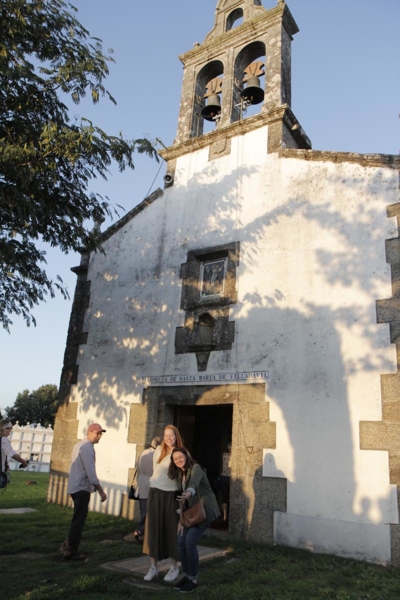
Isabelle Watkins, United Thank Offering intern, and UTO board member Caitlyn Darnell take a selfie outside the Botana family estate church in Arzúa, Spain. The grant-site and walking pilgrims came together for a shared Eucharist the night before the walking pilgrims would complete the Camino de Santiago de Compostela. Photo: Lynette Wilson/Episcopal News Service
Thank offerings collected during a calendar year are granted the following year. UTO has set aside $60,000 in matching funds for the 2020 grant cycle to help to establish an Anglican Pilgrim Centre in Santiago de Compostela. To date, $23,594 has been raised.
The Anglican Pilgrim Centre would follow those in Jerusalem and Rome, the two other cities most often visited by Christian pilgrims. Like Israel and Italy, Spain has a rich religious history, from the time the Apostle St. James brought Christianity to the Iberian Peninsula just after Jesus’ death to its history as part of the Roman Empire to the Muslim conquest that began in 711 and continued until 1492. Then in 1880, the Reformed Episcopal Church of Spain was established by former Roman Catholic priests who began to question the pope’s infallibility and dogma in what was truly a Spanish-led – not an Anglican-led – movement.
Still, the Roman Catholic Church, which aligned itself with the Franco regime, continues to be the state-sanctioned church, receiving $900 million from the Spanish government yearly, and its history is told throughout the country in its many Gothic and Romanesque cathedrals, as the grant site pilgrims would discover. Yet, it was the Episcopal churches and ministries that most impressed the group and brought tears to their eyes.
“It’s just very touching, spiritual and sacred. … It’s holy work, and it feels like holy ground,” said Dugger. “You know, the cathedrals that we’ve been in have been awesome, but these little, tiny, simple churches are more magnificent than the biggest cathedral with all the silver and gold.”
The United Thank Offering was founded in 1890 to support innovative mission and ministry in The Episcopal Church and to promote thankfulness and mission throughout the Episcopal and Anglican churches worldwide. One hundred percent of thank offerings collected are distributed annually in support of projects that address human needs and help to alleviate poverty.
“We say, I don’t know how many times every Sunday, ‘Thanks be to God,’ and I think very few think about it what it is to give thanks and gratitude. What I love about gratitude is that it’s … relational: It means someone has given you something, and there’s really nothing you can do in return. I mean, you can turn it into a transactional thing. But just being grateful and acknowledging that gift, it makes you feel good. It makes you healthier, emotionally and physically,” said Dietrich.
“God asks us to be thankful. He doesn’t ask us, he tells us to be thankful. And I love that it is one of the most obvious things to me that God tells us to do this,” she said. So it’s … a command, but it turns out [that] it feels really good. And it’s so good for us; it brings us closer to God and to others.”
Since it began, UTO has collected and granted $138,629,911.07 in thank offerings to support innovative mission and ministry in The Episcopal Church and the Anglican Communion through 5,257 grants.
– Lynette Wilson is a reporter and managing editor of Episcopal News Service. She can be reached at lwilson@episcopalchurch.org.

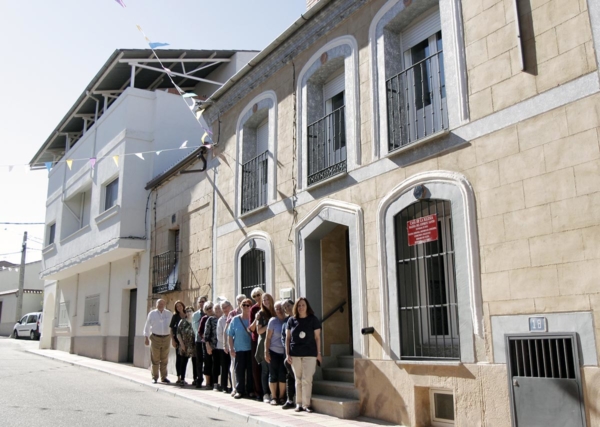
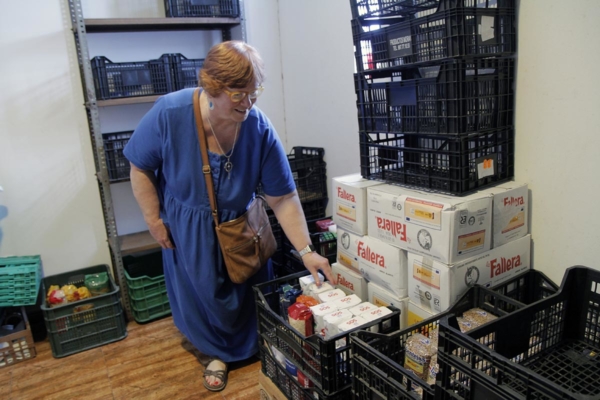
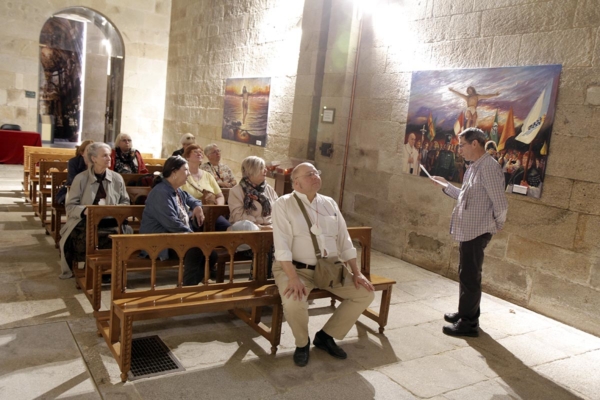
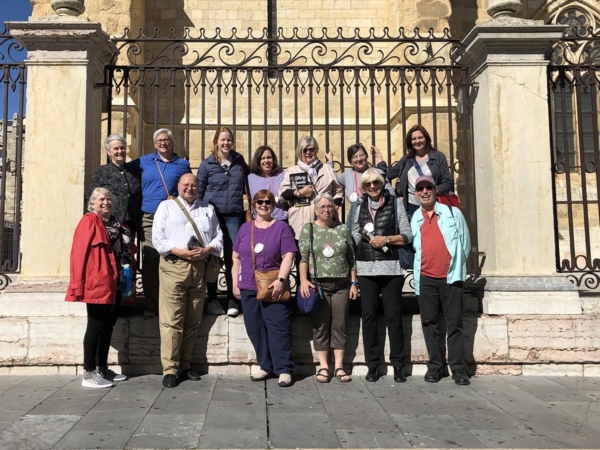
Social Menu